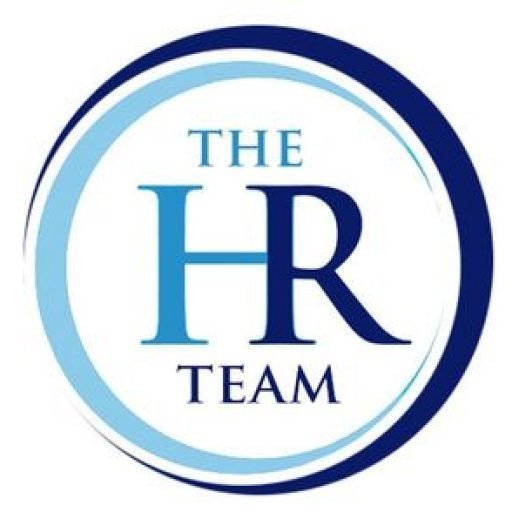Employee Retention, Equal Pay Reviews & Minimum Wage Increases…
How to retain your best employees in 2024
As the challenges of recruitment intensify and employee expectations rise, business leaders must adopt strategic thinking to retain their top talent in the coming year.
The current landscape, marked by a global pandemic, the Great Resignation, and a phenomenon known as “quiet quitting,” signals a significant recalibration in how people integrate work into their lives. Despite record rates of quiet quitting and job transitions, a substantial number of employees express dissatisfaction, creating a fertile ground for pursuing employment upgrades—a narrative echoed worldwide.
In order for companies to achieve their overall business goals for 2024, business leaders must focus on how to retain their best employees. Achieving this involves cultivating commitment within the workforce, a task highlighted by numerous studies on retention and turnover. Success hinges on excelling in three crucial aspects of the employee experience. In the post-Covid era, employees remain loyal and psychologically engaged when they secure their ideal job, engage in meaningful work, and work under the guidance of a great leader.
What can you do as a business leaders and how HR can contribute to shaping these experiences within your organisation?
• Ideal Job:
To define an ideal job, employees assess three key factors: pay, workload, and flexibility. Employees across the world now demand higher wages, reject the hustle culture, and prioritise flexibility—the most sought-after workplace benefit globally. Adequate compensation, a challenging yet manageable workload, and flexibility in when, where, and how they work significantly impact long-term commitment. To enhance this dimension, leaders must innovate compensation structures, optimise workloads through staffing adjustments, and offer benefits that outshine competitors. Continuous efforts to elevate wages and empower workers with more control over their work experience contribute to organisational loyalty.
• Meaningful Work:
The meaningful work dimension centres on the daily work experience, focusing on three key elements: purpose, strengths, and belonging. Employees seek a sense of purpose in their work, aligning their strengths with job responsibilities while feeling accepted within a team. Commitment flourishes when employees believe their work has a meaningful impact. To enrich this experience, leaders should articulate the societal significance of their company’s work, invest in job crafting to align roles with individual talents, prioritise professional development, foster camaraderie among team members, and create an inclusive workplace. These actions collectively contribute to employees finding meaning in their daily tasks.
• Great Leadership:
The third dimension revolves around the individuals overseeing day-to-day work—direct managers. Research highlights the pivotal role of leaders in shaping the employee experience, with managers influencing engagement levels significantly. Effective leadership involves coaching, building trust, and advocating for employees’ best interests. Managers who consistently engage in coaching conversations, earn and grant trust, and advocate for their team members foster positive work experiences. Elevating the great leadership factor necessitates investments in leadership development and management training, creating platforms for leaders to collaboratively address challenges, and upskilling in communication skills. Establishing a people-first culture that prioritises wellbeing further reinforces leadership excellence.
These three dimensions—ideal job, meaningful work, and great leadership—form an internal psychological scorecard for each employee relative to their employer. These factors also reflect the job upgrades and quality of life enhancements that continue to drive record amounts of turnover across a multitude of industries.
Contact The HR Team for expert advice and on-going support with your HR Strategy for 2024.
Is it time for an Equal Pay Review?
Businesses should regularly carry out equal pay reviews for several reasons; reflecting legal requirements, ethical considerations, and the promotion of a fair and inclusive workplace.
Key reasons:
• Equal Pay Legislation:
The UK has a legal framework, including the Equality Act 2010, that mandates equal pay for equal work. Employers are required to ensure that there is no gender pay discrimination in their organisations. Conducting equal pay reviews helps companies comply with these legal obligations.
• Gender Pay Reporting Requirements:
In addition to the general equal pay provisions, companies in the UK with 250 or more employees are required to report their gender pay gap annually. Conducting regular equal pay reviews assists companies in identifying and addressing any gender pay gaps, ensuring compliance with reporting requirements and addressing potential legal consequences.
• Legal Compliance and Risk Mitigation:
Failure to comply with equal pay legislation can result in legal challenges and financial penalties. Regular equal pay reviews help companies identify and rectify any pay disparities, reducing the risk of legal action and demonstrating a commitment to fair employment practices.
• Employee Morale and Engagement:
Ensuring equal pay contributes to a positive workplace culture, boosting employee morale and engagement. Employees are more likely to be motivated and committed when they perceive that they are being treated fairly in terms of compensation.
• Promotion of Diversity and Inclusion:
Equal pay reviews align with efforts to promote diversity and inclusion. By addressing pay disparities, companies contribute to creating a workplace where individuals from diverse backgrounds feel valued and included, enhancing overall organisational diversity goals.
• Reputation Management:
Companies that actively address and eliminate gender pay gaps are more likely to maintain a positive reputation. Reputation matters in attracting and retaining talent, as well as in appealing to socially conscious consumers and investors.
• Talent Attraction and Retention:
In a competitive job market, potential employees may consider a company’s commitment to equal pay as a factor in their decision to join the organisation. Likewise, existing employees are more likely to stay with a company that demonstrates a commitment to fairness and equality.
• Benchmarking and Improvement:
Regular equal pay reviews enable companies to benchmark their pay practices against industry standards and identify areas for improvement. This proactive approach allows organisations to continuously enhance their equal pay practices.
In summary, conducting equal pay reviews is not only a legal requirement but also a strategic and ethical practice. It helps companies uphold legal standards, foster a positive workplace culture, mitigate risks, and contribute to broader societal goals related to gender equality and diversity.
For practical support with an Equal Pay Review and help implementing an Equal Pay Policy, contact The HR Team for expert advice.
Largest ever National Minimum Wage Increase
The Government has announced that it has accepted the Low Pay Commission’s recommendations on minimum wage rates to apply from 1 April 2024. This is the largest ever increase to the minimum wage in cash terms.
For the first time, The National Living Wage will apply to all workers who are aged 21 and over (previously this only applied to people aged 23 and over).
The annual increases to the minimum wage and national living wage with effect from 1 April 2024 are as follows:
• 21 and over – £11.44 (increase of £1.02)
• 18-20 – £8.60 (increase of £1.11)
• 16-17 and apprentices – £6.40 (increase of £1.12)
These increases are effective from 1st April 2024, so it is important to review your employees’ salaries in February/March, so that you have time to communicate wage increases via Contract Amendment letters to any affected employees. Otherwise, you will need to backdate any necessary increases to 1st April, in order to avoid any future disputes around failing to pay the minimum wage.
For support with amending employee terms and conditions, including letter templates to communicate salary increases, contact The HR Team today.








